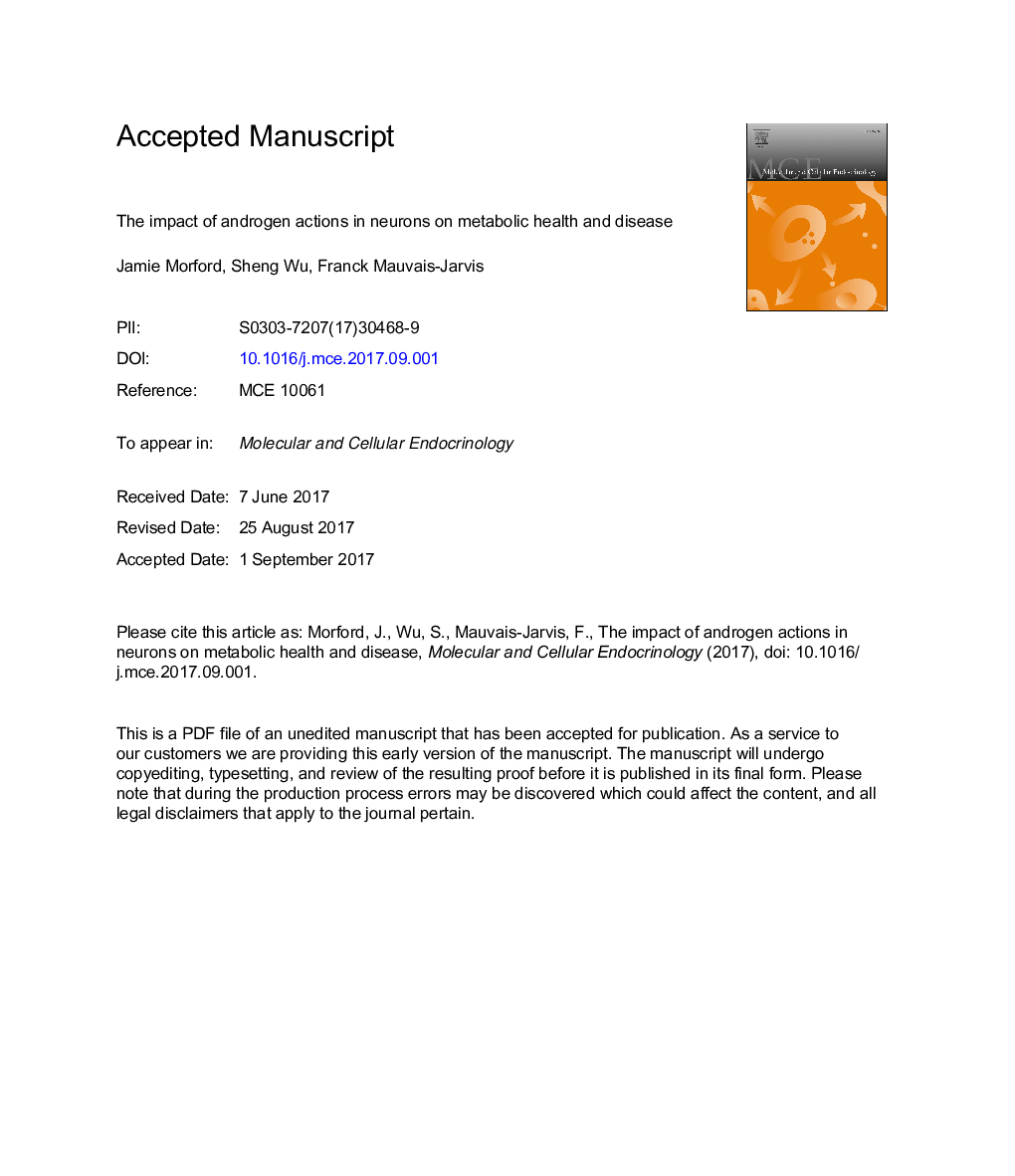| Article ID | Journal | Published Year | Pages | File Type |
|---|---|---|---|---|
| 8476484 | Molecular and Cellular Endocrinology | 2018 | 39 Pages |
Abstract
The male hormone testosterone exerts different effects on glucose and energy homeostasis in males and females. Testosterone deficiency predisposes males to visceral obesity, insulin resistance and type 2 diabetes. However, testosterone excess predisposes females to similar metabolic dysfunction. Here, we review the effects of testosterone actions in the central nervous system on metabolic function in males and females. In particular, we highlight changes within the hypothalamus that control glucose and energy homeostasis. We distinguish the organizational effects of testosterone in the programming of neural circuitry during development from the activational effects of testosterone during adulthood. Finally, we explore potential sites where androgen might be acting to impact metabolism within the central nervous system.
Keywords
Related Topics
Life Sciences
Biochemistry, Genetics and Molecular Biology
Cell Biology
Authors
Jamie J. Morford, Sheng Wu, Franck Mauvais-Jarvis,
